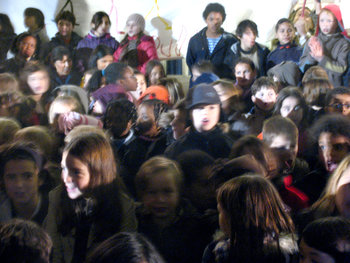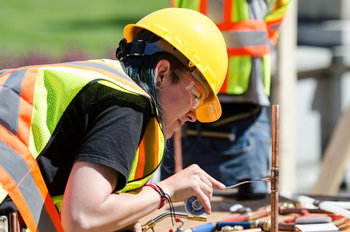|
| |
Social competencies are the social, behavioral, emotional and cognitive abilities that underlie all social processes. These include foundational abilities such as self-control and language and more advanced abilities that are built on top of these such as relationship building, influencing and handling criticism. Social competencies can also be character traits that tend to be beneficial to social processes. The following are common social competencies.
Active Silence | Adaptability & Flexibility | Anticipating Objections | Argument | Assertiveness | Attunement | Body Language | Building Trust | Candor | Challenging Assumptions | Charisma | Communicating Information | Compassion | Conflict Resolution | Consensus Building | Constructive Criticism | Coolness | Cooperation | Creative Tension | Cross-Cultural Communication | Cultural Capital | Debate | Emotional Intelligence | Emotional Interactivity | Empathy | Expressing Emotion | Eye Contact | Facilitation | Following Directions | Forgiveness | Friendliness | Handling Criticism | Handling Difficult People | Honesty | Humor | Improvisation | Independent Thinking | Influencing | Initiating Conversation | Language Comprehension | Languages | Leadership | Listening | Managing Emotions | Manners | Message Framing | Negotiation | Nuanced Communication | Nudges | Observational Learning | Openness | Patience | Perception of Emotion | Perseverance | Personal Presence | Personal Space | Persuasion | Politeness | Positive Criticism | Public Speaking | Questioning | Rational Thought | Reading People | Relationship Building | Remembering Names & Faces | Resisting Peer Pressure | Respect | Saving Face | Self Awareness | Self Control | Self Monitoring | Self Regulation | Setting Expectations | Sharing | Small Talk | Sociability | Social Engagement | Social Initiative | Social Judgment | Social Resilience | Storytelling | Sympathy | Taking Turns | Teaching & Coaching | Tolerance for Disagreement | Trusting Others | Wit |
Social Competence
This is the complete list of articles we have written about social competence.
If you enjoyed this page, please consider bookmarking Simplicable.
An overview of social perception.
A list of common social skills.
The definition of social thinking with examples.
The definition of tact with examples.
An overview of socializing with examples.
An overview of social environment with examples.
A list of common social situations.
An overview of social interaction with examples.
A list of reasons that education is important.
The common types of communication skill.
An overview of positive communication with examples.
An overview of humor with quotations as examples.
An overview of effective communication with examples.
An overview of direct communication with examples.
An overview of basic and advanced presentation skills with examples.
TrendingThe most popular articles on Simplicable in the past day.
Recent posts or updates on Simplicable.
Site Map
© 2010-2023 Simplicable. All Rights Reserved. Reproduction of materials found on this site, in any form, without explicit permission is prohibited.
View credits & copyrights or citation information for this page.
|





























